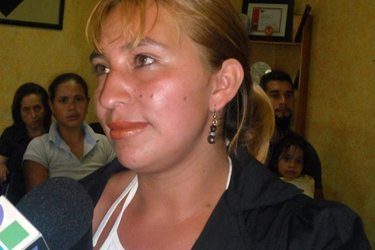Child Abduction for Adoption: Poverty and Privilege Clash as a Child’s Return to Guatemala is Blocked
Being one of many stories of force, fraud, and coercion, Loyda’s case is particularly compelling because all of the steps in the legal system have been followed. Still, there has been no justice.

Last year, a Guatemalan court ruled in favor of Loyda Rodriguez, who had asserted that her daughter had been kidnapped into child adoption, by ordering the that the child be returned to her biological family after five long years of searching. The excitement that followed included Loyda readying her home for the return of her daughter Anyeli, abducted at age two. The U.S. couple who Loyda believes ‘adopted’ her daughter remained silent.
However, it was quickly ascertained that they hired legal representation, including rumored consultation with the lawyer involved in the infamous Elian Gonzalez case. Even more telling was the employment of a public relations firm to manage case information favorably on their behalf. Then, in the fall of 2011, the U.S. couple made a public appearance on national news program and made their point loud and clear—they will not be sending Loyda’s daughter home and they believe they legally adopted the child in 2008. In fact, they questioned if Loyda was the mother even though they could quickly ascertain this with a DNA test. To date no DNA test has materialized.
Now, a year later, I wonder about Loyda and who will advocate for her rights in U.S. courts where this battle will likely continue to unfold. Yes, she has lawyers and a famous human rights defender in Guatemala working on her behalf, but if there ever was a David and Goliath story—this is it! And, being one of many stories of force, fraud, and coercion, Loyda’s case is particularly compelling because all of the steps in the legal system have been followed. Still, there has been no justice.
I am also left wondering about the child in question and how she will eventually reconcile her life story. Reunion between adoptees and their biological families is often complicated, especially when there is a great cultural and language divide. Added to the complications is a history of force, fraud, and coercion that casts such great sadness on this case—an abduction rather than an adoption according to Guatemalan courts. When such reunions have been facilitated, the need for psychological assistance is clear. The case history and trauma must be dealt with sensitively and the need for emotional support is unquestionable before, during, and after such reunions.
Clearly, Loyda and her family have been cast aside by the U.S. family in question, but also by U.S. authorities that refuse to intervene and enforce the court order. As for the adoption agency implicated in this abduction for adoption—they hide behind confidentiality!
When will there be truth and reconciliation for Loyda and the other Guatemalan women and families who were taken advantage of during the Guatemalan adoption boom? At least two more women are also fighting for their daughter’s return as children abducted into adoption. And they are doing what any mother—regardless of their citizenship, economic capacity, and privilege—would do: fight for their rights and the return of their children!
For more about Guatemalan adoption fraud see www.findingfernanda.com and also see Karen Smith Rotabi’s new book, co-edited with Judith Gibbons, entitled Intercountry Adoption: Policies, Practices, and Outcomes (Ashgate Press, 2012). In this book, the chapter written by Mónico and Rotabi sheds light on the history of search and reunion of children abducted into adoption. It is entitled: Truth, Reconciliation, and Searching for the Disappeared Children of Civil War: El Salvador’s Search and Reunion Model Defined. Also, Rotabi’s chapter on adoption fraud explores child abduction for adoption and it is entitled: Fraud in Intercountry Adoption: Child Sales and Abduction in Vietnam, Cambodia, and Guatemala.
